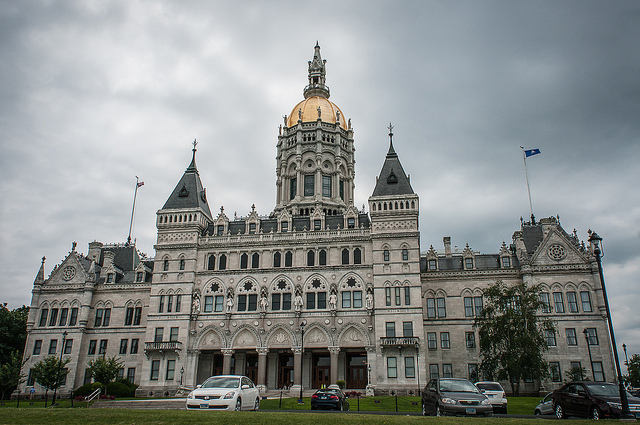
This week, Connecticut lawmakers will vote on a proposed budget deal made between Governor Dannel Malloy and Democratic leaders in the legislature. The agreement they reached includes higher taxes on individuals and businesses in a state that already has the nation’s third highest state and local tax burden. Connecticut taxpayers give nearly 12 percent of their income on average to state and local governments. That burden will rise if this new budget deal is signed into law.
During his campaign for reelection last year, Gov. Malloy promised not to raise taxes. Malloy’s about-face on taxes since the election is largely a result of his new ambitious infrastructure plan, which would cost Connecticut taxpayers $100 billion over the next three decades.
The tax changes in the deal include raising the top income tax rate from 6.7 percent to 6.99 percent. Additionally, the sales tax on computers and data processing – one of the cores of a modern, innovative economy – will triple, from 1.0 percent to 3.0 percent. Another major change is the adoption of a unitary corporate tax, which would tax companies on out-of-state earnings. Many businesses that operate across state borders would now have to pay significantly more Connecticut taxes, leading critics to fear that businesses may flee the state.
The new tax proposals in the budget deal have business leaders balking. “I completely cannot understand the rationale. … This is only going to set Connecticut backwards,” said Joseph Brennan, president of the Connecticut Business and Industry Association. General Electric, one of the state’s largest employers, issued a statement in response to the deal, stating that they are being forced to “seriously consider whether it makes any sense to continue to be located in [Connecticut].”
Connecticut has seen their citizens pack their bags and leave the high-tax state in droves. In 2013, a net 17,000 people left the state, one of the highest net migrations in the country. Overall, the state’s population growth since 2010 has been one of the lowest in the country. Senate Republican Leader Len Fasano fears that the new tax deal may exacerbate the problem, stating that “I fear that this budget will be the last straw for many.”
As a state already struggling from high taxes, this deal would only make matters worse for Connecticut taxpayers and job creators. As Leader Fasano put it, “Connecticut cannot afford any new taxes.” After being hit with more than 20 federal tax increases over the last five years, and just four years after the passage of two dozen state tax hikes, the last thing Connecticut taxpayers and the state’s economy need is for lawmakers in Hartford to pile on with even more job-killing tax increases at the state level.

